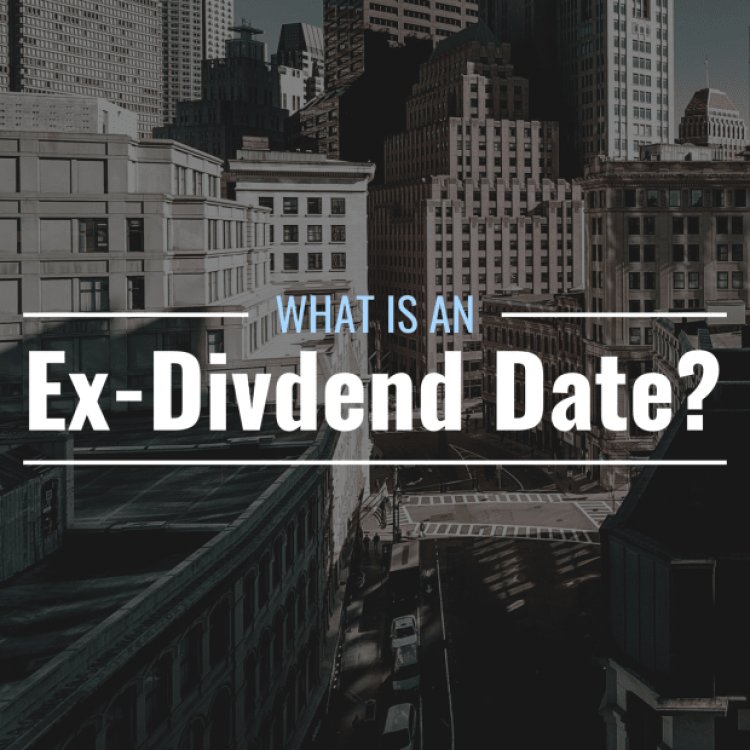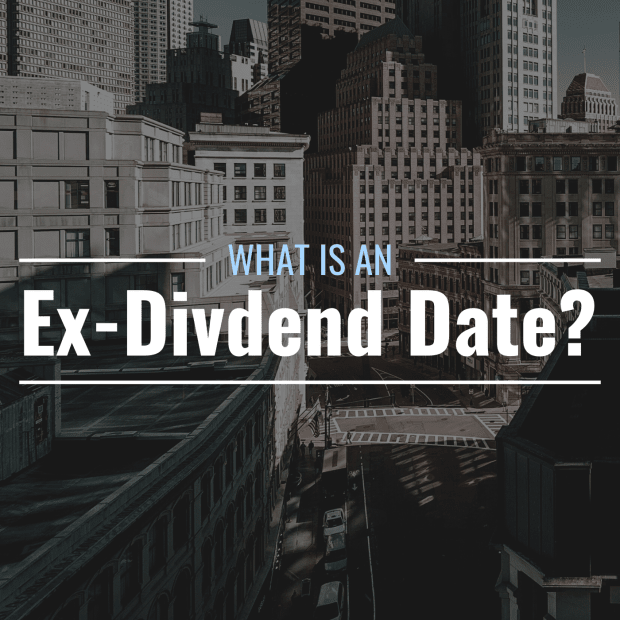What Is an Ex-Dividend Date? Definition, Importance & Related Terms
Many profitable companies pay dividends to their shareholders periodically, but not all shareholders are eligible to receive them. That's why investors interested in dividend-paying stocks should be aware of certain dates as they pertain to the dividend disbursement process. What Is the ...


Many profitable companies pay dividends to their shareholders periodically, but not all shareholders are eligible to receive them. That's why investors interested in dividend-paying stocks should be aware of certain dates as they pertain to the dividend disbursement process.
What Is the Ex-Dividend Date?
The ex-dividend date for a stock is the date that its shares begin trading without the benefit of the next dividend payment for new shareholders. New shareholders who purchase shares on or after the ex-dividend date will not receive the next dividend payment.
In other words, if an investor wants to receive an upcoming dividend from a stock they plan to buy, they must purchase that stock before the ex-dividend date. The last trading day before the ex-dividend date is the last possible day an investor can buy a stock and be eligible for its next dividend.
The ex-dividend date is one of several key dates surrounding the payment of a dividend.
What Is the Dividend Declaration Date?
The dividend declaration date—usually at least a week before the ex-dividend date—is the date the company notifies shareholders and the public that it will be paying a dividend. On this date, the board of directors specifies the payment per share each shareholder will receive (or the number of shares each shareholder will receive in the case of a stock dividend).
What Is the Record Date?
The record date is the date—usually two days after the ex-dividend date—is the day the company checks its shareholder records and notes which shareholders are eligible for the upcoming dividend. Any new shareholders who purchased shares before the ex-dividend date are recorded as eligible in the company's books.
What Is the Payout Date?
The dividend-payout date is the actual date the shareholders of record receive their dividend payments.
Why Do Ex-Dividend Dates Matter?
In order to receive the dividend payment for that period, an investor must complete their purchase of the stock before the market opens on the ex-dividend date. Conversely, if a shareholder sells their shares before the date of record on the stock, they miss out on the dividend payment on the shares that were sold.
Stocks known to pay sizable dividends often see their price rise in the trading days leading up to the ex-divided date if traders place a high value on that dividend.
When the ex-dividend date hits, the stock's ticker may be marked with an "x" for ex-dividend on quote systems and online stock price listings. The exchange on which the stock trades may automatically reduce the stock's price. This change would be reflected in the bid-ask price of the stock.
Most exchanges also adjust the price on limit orders once the stock has gone ex-dividend. For example, if the dividend is $1, then limit orders placed on the stock may be reduced by $1 to reflect the arrival of the ex-dividend date. However, investors may be able to submit their limit orderswith a "DNR" specification for do not reduce. None of this matters greatly unless the share price is close to the limit price for the order.
Investors buying and selling shares of dividend-paying stocks should be cognizant of the potential impact the ex-dividend date could have on the price they pay or receive for shares of the stock.
What Happens on the Ex-Dividend Date?
The market makers or specialists for the stock in question may mark down its price by the amount of the dividend on the ex-dividend date. This can create a buying opportunity for investors looking to add to a long position by buying more shares of the stock. The price of the stock is depressed temporarily, so investors can buy the stock on the dip and hold it until the next dividend date to earn the next dividend.
Buyers of a stock on or after its ex-dividend date do not receive the dividend payment for that quarter. The stock usually trades lower on the ex-dividend date before returning to a typical cycle of rising and falling in price based on the fundamentals of the stock, market conditions, and company/industry news.
Ex-Dividend Date Example
Let's look at an example of how the ex-dividend date might work with an individual stock.
- ABC distribution stock is trading at $50 a share.
- The quarterly dividend payout is $1 a share.
- The stock's ex-dividend date is June 16, a Monday.
- The stock's date of record is June 17.
Example 1:
If Joe buys 100 shares of the stock on June 16, he will not receive the dividend payout for this quarter, but will likely be able to purchase the stock at $49 per share as it is discounted by the amount of its dividend.
Example 2:
If Joe buys the 100 shares on Friday, June 13, Joe will receive the dividend but will likely pay $50 per share as the dividend's value is likely to be included in its market price.
Do Ex-Dividend Dates Matter to Long-Term Investors?
For long-term investors, a stock's ex-dividend date may not matter so much. However, even long-term shareholders may sell some or all of their shares at one or more points in time. When that time comes, these shareholders should pay attention to the ex-dividend date. The timing of their sell order around this date could result in receiving a slightly lower price for their shares and/or could cause them to miss out on a dividend payment. These factors should be weighed in the broader context of their overall investment strategy.
Do Mutual Funds and ETFs Have Ex-Dividend Dates?
Mutual funds that pay dividends also have ex-dividend dates that work similarly. The same holds true with ETFs and other exchange-traded securities that declare and pay dividends.
What's Your Reaction?



























































